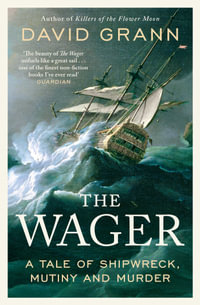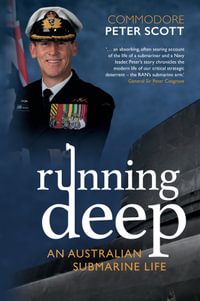From two former military officers and award-winning authors, a chillingly authentic geopolitical thriller that imagines a naval clash between the US and China in the South China Sea in 2034 - and the path from there to a nightmarish global conflagration
'A rippingly good read' Wired
From two former military officers and award-winning authors, a chillingly authentic geopolitical thriller that imagines a naval clash between the US and China in the South China Sea in 2034 - and the path from there to a nightmarish global conflagration
On 12 March 2034, US Navy Commodore Sarah Hunt is conducting routine freedom of navigation patrol in the South China Sea. On that same day, US Marine aviator Major Chris 'Wedge' Mitchell is flying an F-35E Lightning, testing a new stealth technology as he flirts with Iranian airspace. By the end of that day, Wedge will be an Iranian prisoner, and Sarah Hunt's destroyer will lie at the bottom of the ocean. A new, terrifying era is at hand.
So begins a disturbingly plausible novel, co-authored by an award-winning novelist and decorated Marine veteran and the former commander of NATO, a legendary admiral. Everything in 2034 is an imagination extrapolation from present-day facts on the ground, informed by the authors' years working at the highest and most classified levels of national security. Sometimes if takes a brilliant work of fiction to illuminate the most dire of warnings- this cautionary tale presents a dark yet possible future that we must do all we can to avoid.
'I could not stop reading 2034' Phil Klay, author of Redeployment
About the Authors
Elliot Ackerman is the author of several novels including Dark at the Crossing, which was a finalist for the National Book Award, and most recently Waiting for Eden. His writings appear in Esquire, The New Yorker, The Atlantic, and The New York Times Magazine, among other publications, and his stories have been included in The Best American Short Stories and The Best American Travel Writing. He is both a former White House Fellow and Marine, and served five tours of duty in Iraq and Afghanistan, where he received the Silver Star, the Bronze Star for Valor, and the Purple Heart. He divides his time between New York City and Washington, D.C.
Admiral Jim Stavridis, USN (Ret.), spent more than thirty years in the U.S. Navy, rising to the rank of four-star admiral. He was Supreme Allied Commander at NATO and previously commanded U.S. Southern Command, over-seeing military operations throughout Latin America. At sea, he commanded a Navy destroyer, a destroyer squadron, and an aircraft carrier battle group in combat. He holds a PhD from the Fletcher School of Law and Diplomacy at Tufts University, where he recently served five years as dean. He received fifty medals in the course of his military career, including twenty-eight from foreign nations. He is the author of ten other books, including Sea Power- The History and Geopolitics of the World's Oceans and Sailing True North- Ten Admirals and the Voyage of Character, and is Chief International Analyst for NBC News and a contributing editor of Time magazine. He is currently the vice chair, global affairs, and managing director of the Carlyle Group and the chair of the board of the Rockefeller Foundation.
Industry Reviews
There is conflict and catastrophe on a large scale, and it unfolds, as major conflicts tend to, with surprising twists and turns . . . This is not a pessimistic book about America's potential, but the picture of the world it paints before the central conflict will be a difficult one for many to accept, albeit one well supported by facts * Wall Street Journal *
An unnerving and fascinating tale of a future . . . The book serves as a cautionary tale to our leaders and national security officials, while also speaking to a modern truth about arrogance and our lack of strategic foresight . . . The novel is an enjoyable and swiftly paced but important read * The Hill *
This crisply written and well-paced book reads like an all-caps warning for a world shackled to the machines we carry in our pockets and place on our laps, while only vaguely understanding how the information stored in and shared by those devices can be exploited. * The Washington Post *
If you're looking for a compelling beach read this summer, I recommend the novel 2034 -- Thomas L. Friedman * The New York Times *
Utterly engrossing . . . [2034] is incredibly well-written, deeply thought-provoking, and it makes for uncomfortable and sober reading-in the best of ways...Elliot Ackerman is one of the finest writers to come out of this generation of military veterans and officers -- Joshua Huminski * Diplomatic Courier *
Consider this another vaccine against disaster. Fortunately, this dose won't cause a temporary fever-and it happens to be a rippingly good read. Turns out that even cautionary tales can be exciting, when the future we're most excited about is the one where they never come true * Wired *

























